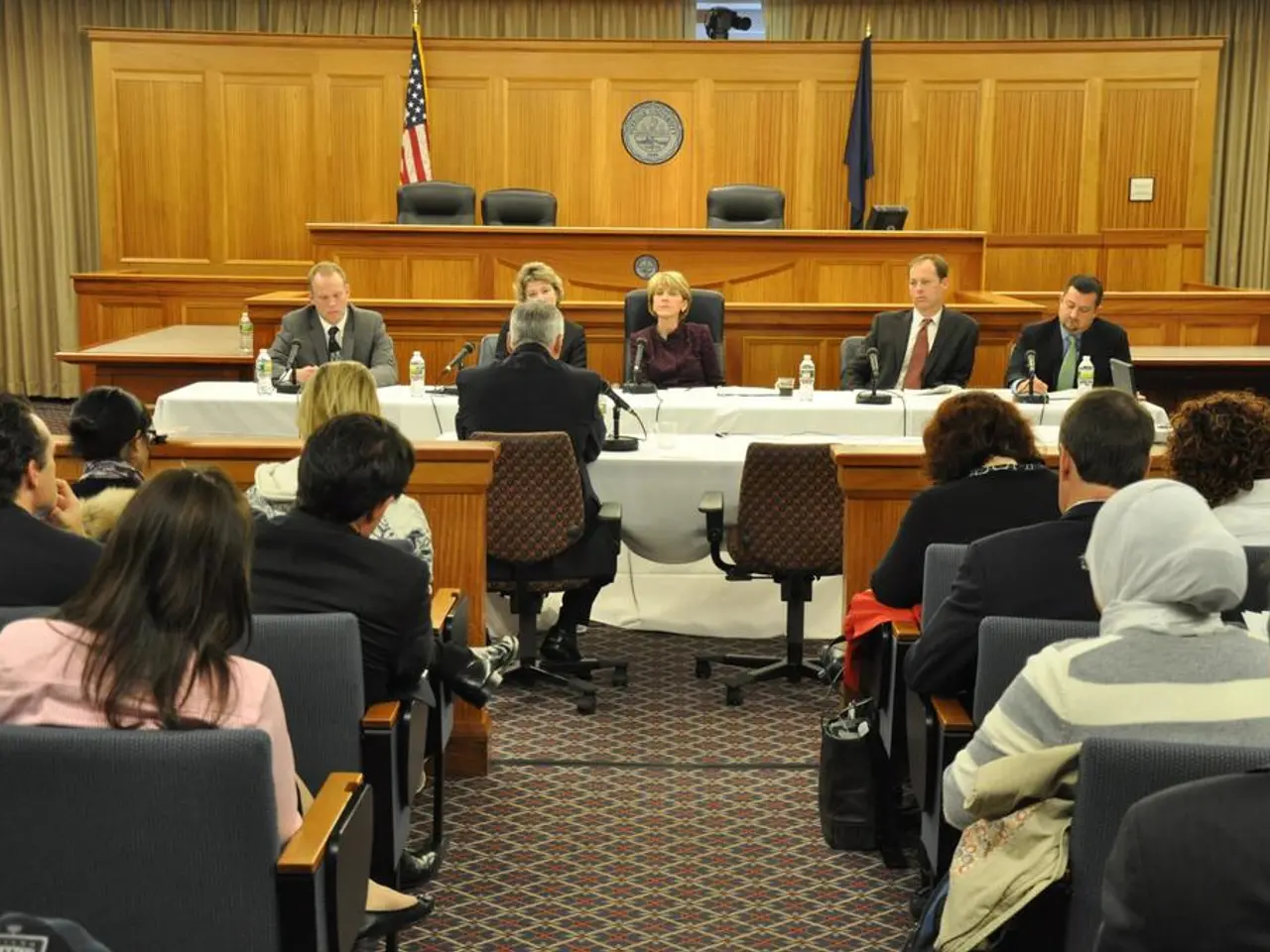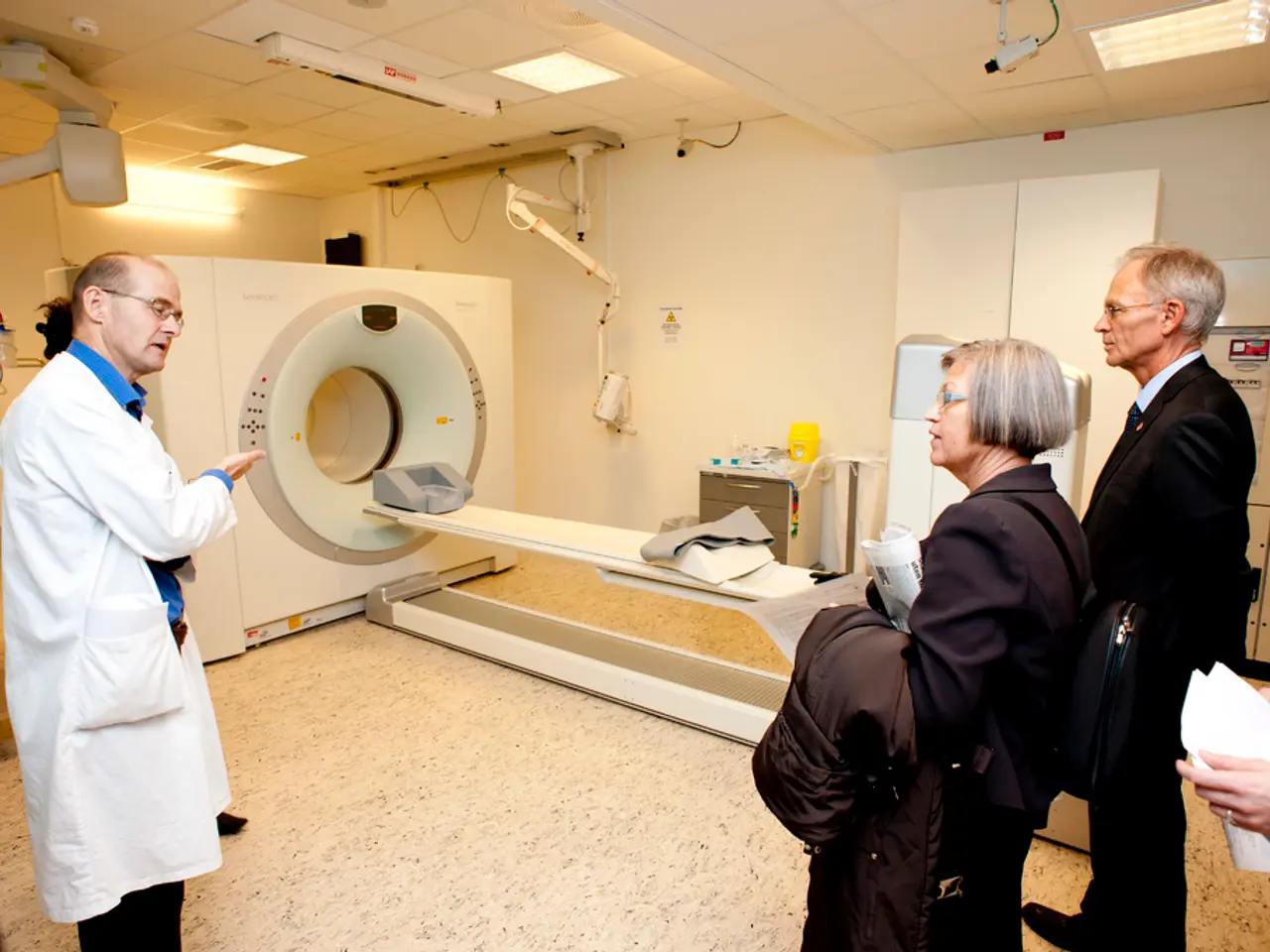Revamped National Security Council Now Serves as Main Headquarters
Germany Establishes National Security Council for Improved Crisis Management
Germany is set to establish a National Security Council (NSC) to enhance its crisis management and security policy handling. The new council, chaired by Federal Chancellor Friedrich Merz, will serve as a central advisory and coordinating body.
Role and Function
The NSC aims to pool security policy expertise from different government sectors for better coordination. It will meet in times of crises and for strategic planning related to national and international security threats. The council is intended to enhance the integration of security efforts across ministries and agencies, increasing efficiency in crisis response and strategic policy formulation.
Members
The NSC will include key federal ministers, such as Finance, Foreign Affairs, Defence, Internal Affairs, Justice, Economics and Energy, Economic Cooperation and Development, Digitalisation and State Modernisation. The head of the Federal Chancellery will also be a member, with additional government members joining as needed.
For the first time, representatives of Germany's federal states (Länder) will be consulted. Other states, such as the European Union or NATO, may also be involved. Representatives of German security authorities will also participate in the NSC.
Meeting Frequency
The NSC is scheduled to convene primarily when crises occur. It will also meet to draft strategies to manage or prevent security threats. Formal rules for the council were set to be decided by the German cabinet as of August 2025.
Strategic Objectives
The NSC's strategic objectives include coordinating security policy across federal ministries and agencies, responding quickly and effectively in crises, drawing up comprehensive strategies to address current and emerging security challenges, and integrating federal state and international partners into national security planning.
The NSC aims to overcome "silo thinking" and become a "hub" for integrated and networked security thinking, responsible for internal, external, digital, and economic security.
Additional Measures
In addition to the NSC, there are plans for a National Crisis Staff of the Federal Government and a National Situation Center in the Federal Chancellery. The NSC will create situation pictures and prepare information.
The establishment of the NSC marks a significant step in Germany's efforts to streamline communication and decision-making on security matters while maintaining democratic oversight and multilevel cooperation. The rules of procedure for the National Security Council will be adopted at the next meeting of the Federal Cabinet on August 27.
Sources: [1] German government establishes National Security Council. (2022, July 29). Deutsche Welle. Retrieved August 1, 2022, from https://www.dw.com/en/german-government-establishes-national-security-council/a-61561859 [2] National Security Council (NSC). (n.d.). Bundeskanzleramt. Retrieved August 1, 2022, from https://www.bundeskanzleramt.de/Content/DE/Aktuelles/Themen/Sicherheitspolitik/Nationales-Sicherheitskonzept/Nationales-Sicherheitskonzept-Nachrichtendienst-Nachrichten/Nationales-Sicherheitskonzept-Nachrichtendienst-Nachrichten-Artikel-1229349.html [3] National Security Council (NSC). (n.d.). Wikipedia. Retrieved August 1, 2022, from https://en.wikipedia.org/wiki/National_Security_Council_(Germany) [4] National Security Council (NSC). (n.d.). Politico. Retrieved August 1, 2022, from https://www.politico.eu/article/germany-establishes-national-security-council/
- "In light of the new National Security Council (NSC) in Germany, discussions regarding the council's policy-and-legislation implications in political arenas could intensify,"
- "The general-news outlets might also focus on how the role of the NSC, particularly in relation to radio broadcasts, could play a significant part in crisis management communication strategies."







